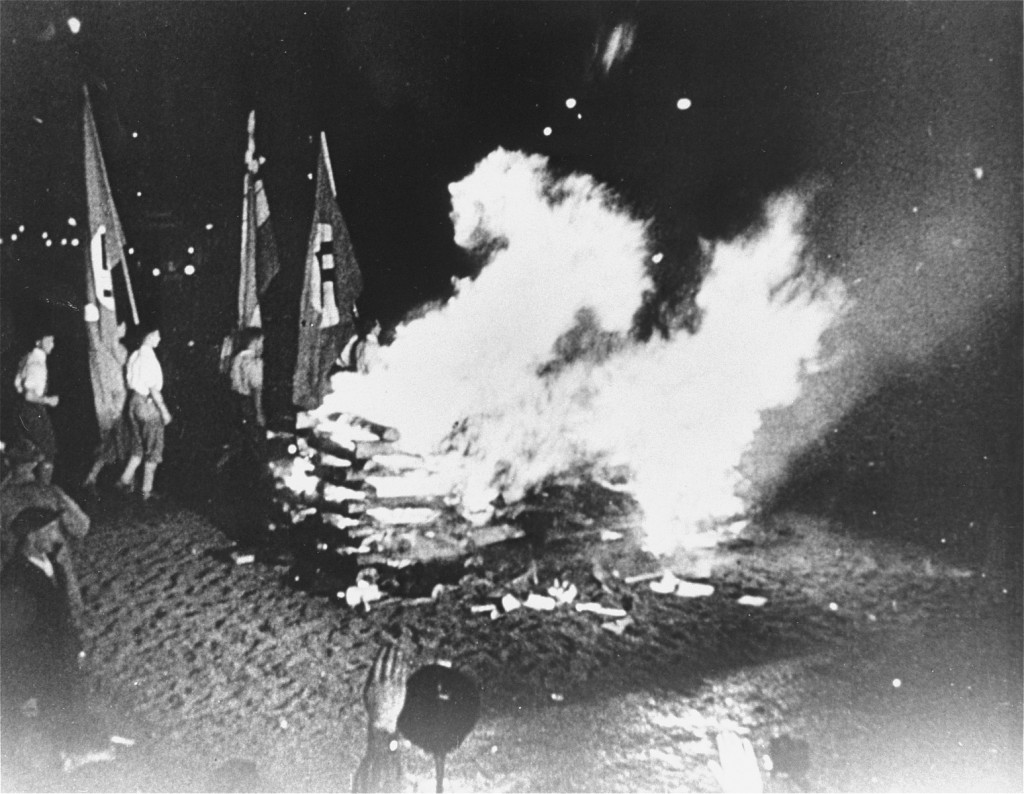
Kurt Tucholsky
In 1933, Nazi students at more than 30 German universities pillaged libraries in search of books they considered to be "un-German." Among the literary and political writings they threw into the flames were the works of Kurt Tucholsky.
Excerpt
There is an organism called man, and he is the important thing. And the goal is his freedom. Groups are something secondary; the state is something secondary. The important thing is not that the state should live—it is that the individual should live.
—"Blick in ferne Zukunft" (Glance to the distant future), Kurt Tucholsky, 1930
Fire Oath
"Fire oaths" were statements to be read as books were tossed to the flames. The German Student Association sent out a circular containing these statements before the book burnings. The fire oaths then accompanied the burning of works written by the individual authors named in the statements.
Against impudence and presumption
For veneration and reverence for the immortal German national spirit
Tucholsky and Ossietzky
Which of Kurt Tucholsky's Works were Burned?
All works published before May 1933
Who was Kurt Tucholsky?
German satirist Kurt Tucholsky (1890-1935) relentlessly attacked the Nazis during their rise to power. In one poem he scorned what he saw as the do-nothing attitude of the German public as the danger drew closer. "Cuddle the Nazis," he wrote, "even if they stick a knife in your ribs."
Conscripted into the German armed forces, Tucholsky had served at the front for most of World War I and later became a dedicated pacifist and socialist. His satire attacked injustice, privilege, and militarism. He expressed his unsparing wit in short vignettes, newspaper articles, poems, and popular cabaret songs. In 1924 he moved to France and in 1929 to Sweden.
In 1933, Kurt Tucholsky's works were consigned to the flames with a "fire oath" against "impudence and presumption." After Hitler's rise to power and the book burnings, he fell silent. Two years later, Tucholsky committed suicide in his home in Sweden.
Critical Thinking Questions
If Jews were the principal target during the Holocaust, why were books written by non-Jewish authors burned?
How did the German public react to the book burnings? What were some of the reactions outside of Germany?
Why do oppressive regimes promote or support censorship and book burning? How might this be a warning sign of mass atrocity?

